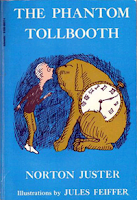
My son, now in his sophomore year in college, switched his major to English literature in the middle of his freshman year. I never imagined the burst of joy I would feel when I heard those beautiful words, "I think I'm going to change my major." It isn't that I didn't approve of his former major (entertainment industry), it's just that he is the quintessential English major.
All that to say: when I quizzed him on his favorite book all year, he named Willa Cather's
Song of the Lark without hesitation. I am proud to say that I introduced my son to Willa Cather with
My Antonia, which I actually didn't read until a few years ago. Oh my goodness. How I adored that book! I have no idea how Willa Cather escaped me all of my years as an English major.
But I had never even
heard of
Song of the Lark until my son had to read it for a class. I grabbed it from his bookshelf a few weeks ago when I discovered I had nothing to read. Notice I said "a few weeks ago." I was in one of those fall-asleep-after-3-pages kind of months. But that has no reflection on the book.
I loved it. This is the story of a little immigrant girl with a very big voice in a tiny town in Colorado. Everyone in Moonstone knows that Thea is different. It is no surprise when an inheritance from an admirer allows her to go to Chicago to study music. Ultimately she becomes a great opera singer, but not without tremendous sacrifice. This is the portrait of the artist as a young woman and more: the classic struggle of the artist with herself, with society, with the people who love her.
Cather's prose is phenomenal. This is one of those books in which I wanted to keep underlining passages and turning down page corners. Such moments of profundity! Such perfectly poetic descriptions! I am quite sure that Cather is severely neglected in the study of American literature. I don't understand why she is left out of the traditional canon. In my experience students respond enthusiastically to
My Antonia, and I suspect
Song of the Lark—with its themes of coming of age, search for identity, and struggle of the artist— would also widely appeal to students.
And adults, of course. I loved this novel, not as much as
My Antonia, but tremendously. I noticed that there is a
PBS movie of
Song of the Lark. Sadly, neither Netflix nor our local public library carries it.
 Books Read in October (click for reviews)
Books Read in October (click for reviews) Added to My Ever-Growing TBR List
Added to My Ever-Growing TBR List




